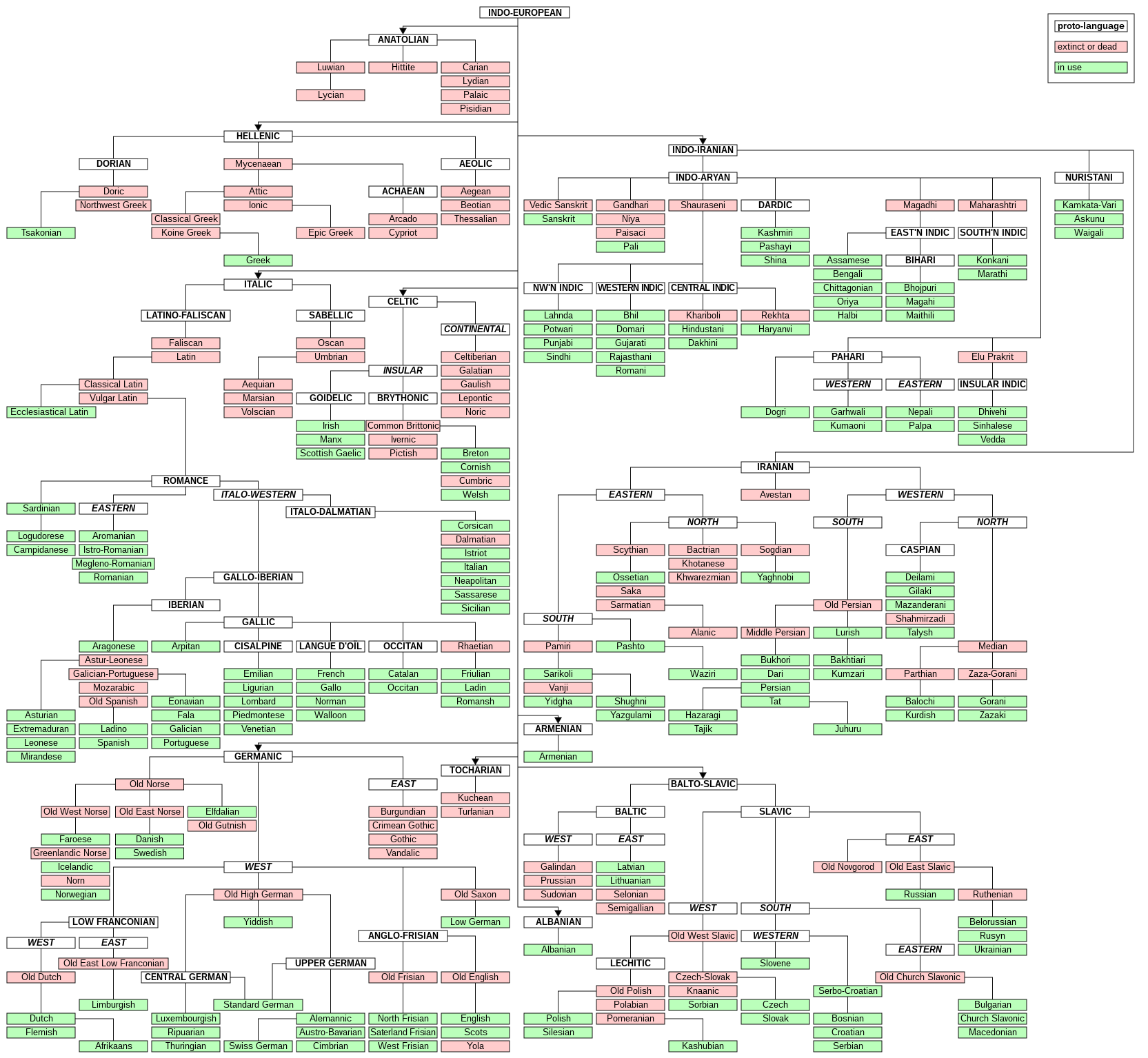
French Dieu Spanish Dios from Latin Deus from Ancient Greek Zeus from Proto-Hellenic *dzéus from Proto-Indo-European *deiwos meaning "celestial" or "shining" Iuppiter or Jūpiter from Roman Diespiter (deus + Latin: pater = English: father) from Proto-Italic *djous patēr from Proto-Indo-European root *Dyḗws*Pahtḗr literally meaning "Sky Father" Whence is also derived the name of the Hindu sky god Dyáuṣ Pitṛ́ (Vedic Sanskrit: Dyáuṣpitṛ́) and Proto-Germanic *Tīwaz or Tius hence Old Norse Týr English mother from Middle English moder from Old English mōdor from Proto-Germanic *mōdēr from Proto-Indo-European *méh₂tēr Other cognates include Spanish madre Latin māter Greek mā́tēr/mā́tar Slavic *mati Persian madar Sanskrit mātṛ English Sin from Old English synn "moral wrongdoing" from Proto-Germanic *sundiō probably "it is true" from Proto-Indo-European *snt-ya-, a collective form from *es-ont- "becoming" present participle of root *es- "to be" Sanskrit Bodhisattva "one whose essence is perfect knowledge," from bodhi "perfect knowledge" + sattva "reality, being" from sat-, sant- "existing, true, virtuous" from Proto-Indo-European root *es- "to be"

Science “knowledge (of something) acquired by study; information;” also “assurance of knowledge, certitude, certainty,” from
Old French science “knowledge, learning, application; corpus of human knowledge” from
Latin scientia “knowledge, expertness,” from
sciens “intelligent, skilled,” present participle of scire “to know.”
Original Latin verb probably “to separate one thing from another, to distinguish,” or else “to incise” related to
scindere “to cut, divide” from
PIE root *skei- “to cut, split;”
*skei-
Porto-Indo-European root meaning “to cut, split,” extension of root *sek- “to cut.”
Forms part of:
science (known, to know, knowing)
conscience (con- “together, with”)
nescience (ne- “not”)
omniscience (omni- “all”)
prescience (pre- “before”)